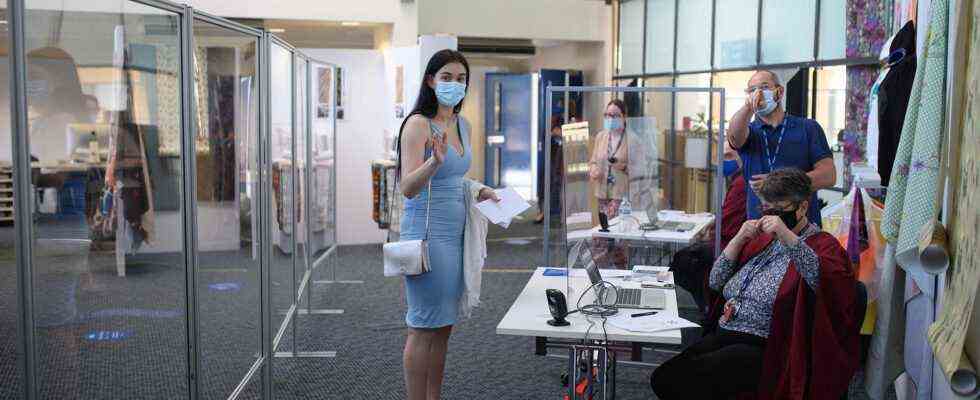Status: 04.09.2021 12:47 p.m.
Higher tuition fees, visa costs and more red tape: studying in the UK has become more difficult for EU citizens. This is why fewer and fewer students are coming to the UK.
Britain’s exit from the EU is also having an impact on the country’s universities: at the start of the academic year this fall, only 800 Germans are starting their studies in the United Kingdom, according to figures from the central registry UCAS. That is only half as many as in the previous year when 1,600 Germans were counted. At that time there was still a Brexit transition phase with largely the same rules as before.
The total number of students from the EU fell even more sharply: from 27,750 to 11,700. While it was very straightforward to study and research abroad before Brexit, the new visa regulations mean that more work is now required. Short-term study visits have also become more complicated. With Brexit, the United Kingdom also withdrew from the EU’s own exchange program Erasmus, through which thousands of young people from the EU spent their semesters abroad on the island for years.
Higher costs and more bureaucracy
The corona pandemic has also contributed to the decline in new students. Significant increases in study costs and more bureaucracy since Brexit are decisive. “When Great Britain was still part of the European Union, there was the principle of equality. Everyone had to pay the same tuition fees,” said Ulrich Hoppe, head of the German-British Chamber of Commerce and Industry (AHK) in London. That has now changed.
While EU citizens in England, like British and Irish students, have previously paid a maximum of 9,250 pounds, the equivalent of around 10,800 euros – tuition fees per year, the universities will be able to charge significantly more from beginners from the EU – but also from Switzerland, for example – from the new academic year. In addition: Newcomers to the country cannot apply for state support. In addition, everyone who only moved to the UK in 2021 now needs a visa. Here, too, high costs and great bureaucratic effort are the result.
Ministry of Education speaks of “adjustment phase”
The UK Department of Education did not comment on the numbers. The government only said that students from the EU were an important and valued part of the higher education system. However, Peter Mason of Universities UK International admitted: “After Brexit there was an adjustment phase as EU students are treated like other international applicants, as opposed to UK residents.” He emphasized, however, that EU students are still welcome, and that teachers from the international community play an important role.
But there is great skepticism. Above all, the British exit from the EU student exchange program Erasmus made the universities appear less attractive, said the political scientist Simon Usherwood of the Open University, the largest state university in the country, the news agency dpa. To replace it, the government has launched a program called the Turing Scheme. This means that 363 projects will be funded in this academic year, offering more than 40,000 schoolchildren and students the opportunity to work abroad, including in Germany. How many of them actually take advantage of the opportunity is not known.
Mainly affected by the humanities and arts
Usherwood said it would take a long time to develop anything like Erasmus contacts. So far, the humanities and arts have been particularly affected. He warned that Brexit would also have consequences for teachers. “The longer the UK has no stable relationship with the EU, the more difficult it will be to attract the highly skilled people who have made the industry so successful.” AHK boss Hoppe shares the fears. “The study location is no longer so attractive,” he said of the dpa. Hoppe warned that the development could contribute to further alienation between Great Britain and the EU. “Something’s going to be lost.”

